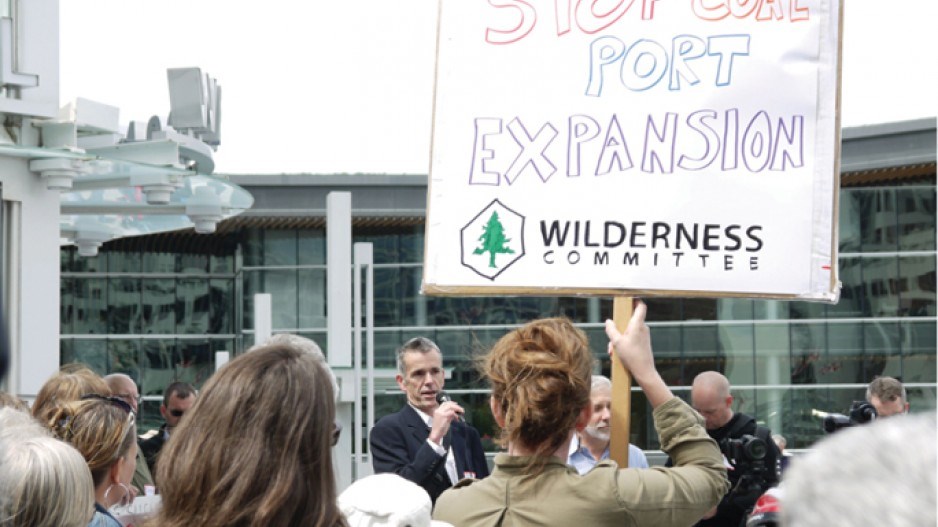A controversial Fraser Surrey Docks coal terminal was approved last week as Port Metro Vancouver announced a permit August 21 that clears the way for the port facility's direct coal transfer project.
The terminal will handle thermal coal from the U.S., which will arrive by rail and be transferred onto barges, then taken to a transfer station on Texada Island where it will be loaded onto ships destined for Asia and primarily for the region's coal-fired electricity plants.
One train a day, made up of 125 cars of thermal coal, is expected to move through the Metro Vancouver region on its way to Fraser Surrey Docks.
“Over the past two years, a significant amount of work and a number of comprehensive studies have gone into ensuring this project is safe and that concerns raised were addressed,” Fraser Surrey Docks CEO Jeff Scott said. “We're pleased that Port Metro Vancouver has granted the permit, and we will now begin moving toward construction.”
Coal currently makes up a large portion of the bulk cargo shipped from Port Metro Vancouver terminals like Neptune in North Vancouver. Most of that material is metallurgical (steelmaking) coal that has been mined in British Columbia.
The BC Chamber of Commerce applauded the approval of the coal facility, which will handle up to four million tonnes of coal per year – approximately 10% of the port's coal shipments.
Chamber president and CEO John Winter said the project would create 25 direct and 25 indirect jobs.He pointed out in a press release that B.C.'s chambers of commerce support the expansion of coal-export infrastructure in the province.
“With the approval of projects such as this, the port will continue to be a creator of jobs and economic opportunity.”
Just as a Port Metro press conference announcing the terminal's approval was getting underway, Greenpeace, the Sierra Club and Climate Solutions were wrapping up a press conference in which they argued the long-term demand for coal in Asia was falling, meaning there's no good economic case for a West Coast coal terminal.
Scott said the $20 million coal terminal is expected to be completed by the fall of 2015. He said names of the American companies that will use the terminal have yet to be announced.
“We hope to be able to announce that shortly, but we're not in a position to announce the customers yet.”
Port Metro's two-year permitting process for the project was dogged by complaints from residents and local governments concerned about the environmental and health risks posed by trains loaded with coal rolling through neighbourhoods.
Environmental groups are also concerned about the impact of transporting the coal on marine life in the Fraser River and in the waters around Texada Island.
The chief health officers for the Vancouver and Fraser Valley health authorities raised concerns that an environmental impact assessment of the project completed by SNC-Lavalin (TSX:SNC) for the port did not include enough information about how it would affect human health.
Port Metro Vancouver ordered Fraser Surrey Docks to conduct a second health assessment study. Based on that study, the port authority said it's confident the project poses “acceptable” risks to human health.
Fraser Surrey Docks will be required to continue to monitor air quality and report those results to the port. It is currently in a legal battle with Metro Vancouver, arguing that the regional district has no jurisdiction over the air pollution it emits because it's on federally regulated port land.
Regulations to control coal dust have also been tightened, said Jim Crandles, the port's director of development and planning. Burlington Northern Santa Fe Railway (NYSE:BNI), the company that will be shipping the coal cars by rail, has committed to spraying a double layer of binding agent on the coal to reduce the amount of dust generated from shipping it by rail.
The port will not continue to monitor the impact of the coal shipping facility on the Fraser River; however, Fraser Surrey Docks will not be permitted to transfer coal by barge during high winds. The port will monitor the sediment at the base of the coal loading facility.




